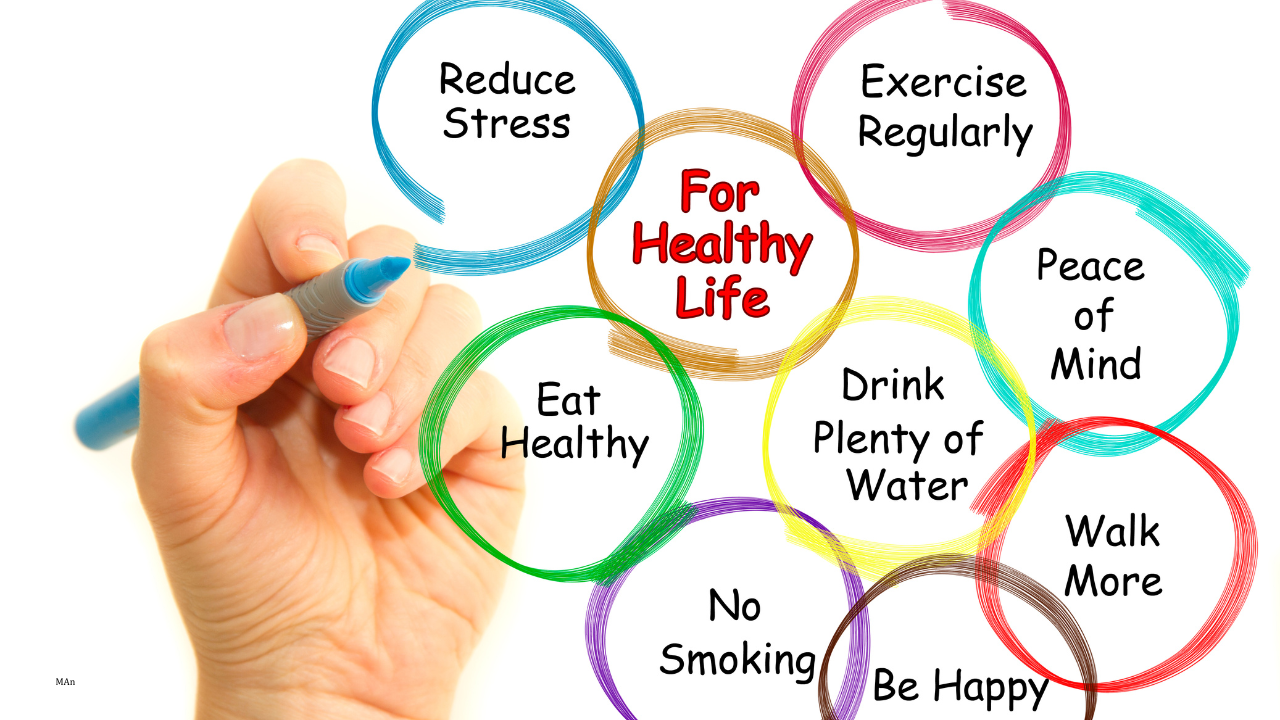5 mins read//
1. Dietary Changes
- Focus On:
- Balanced diet: Prioritize whole foods, including lean proteins, whole grains, healthy fats, and plenty of fruits and vegetables. Avoid processed and refined foods.
- Adequate protein intake: Protein helps preserve muscle mass and promotes fat loss. Aim for 1.2–1.6 grams of protein per kg of body weight daily.
- Portion control: Be mindful of serving sizes to avoid overeating. Focus on appropriate portion sizes, especially for high-calorie foods.
- Meal planning: Plan meals in advance to reduce the temptation of unhealthy food choices and help maintain consistency.
- Hydration: Drink plenty of water throughout the day. Staying hydrated helps manage hunger, improves energy, and aids in digestion.
- Avoid:
- Sugary and processed foods: Limit sugar-sweetened beverages, processed snacks, and fast food. These are high in calories and low in nutrition.
- Crash diets: Avoid overly restrictive or fad diets that drastically cut calories. These can lead to muscle loss, fatigue, and nutrient deficiencies.
- Skipping meals: Skipping meals can lead to overeating later in the day or cause energy crashes.
2. Physical Activity
- Focus On:
- Strength training: Incorporate resistance exercises (such as weightlifting or bodyweight exercises) to build muscle, which boosts metabolism.
- Cardiovascular exercise: Engage in regular aerobic exercises like walking, jogging, cycling, or swimming to burn calories and improve heart health.
- Daily movement: Increase overall physical activity, such as taking the stairs, walking more, or standing instead of sitting for long periods.
- Consistency: Aim for at least 150-300 minutes of moderate-intensity or 75-150 minutes of vigorous-intensity exercise per week, coupled with two days of strength training.
- Avoid:
- Overtraining: Avoid pushing your body too hard without proper rest. This can lead to injury, burnout, and slow recovery.
- Sedentary habits: Break up long periods of sitting or inactivity. Even small movements throughout the day contribute to weight loss.
3. Sleep and Stress Management
- Focus On:
- Quality sleep: Get 7-9 hours of sleep each night. Sleep deprivation can increase cravings and affect metabolism.
- Stress management: Practice techniques such as yoga, meditation, or deep breathing exercises to manage stress, which can lead to emotional eating.
- Mindful eating: Pay attention to hunger and fullness cues. Eat slowly and enjoy your food to prevent overeating.
- Avoid:
- Sleep deprivation: Chronic lack of sleep can cause hormonal imbalances, increase hunger, and lead to weight gain.
- Chronic stress: High-stress levels elevate cortisol, which promotes fat storage, particularly in the abdominal area.
4. Mindset and Motivation
- Focus On:
- Set realistic goals: Aim for gradual, steady weight loss (0.5 to 1 kg per week) for sustainable results.
- Positive mindset: Stay motivated and focus on progress, not perfection. Celebrate small victories along the way.
- Track progress: Use a journal or app to monitor food intake, workouts, and progress. This can keep you accountable.
- Seek support: Engage with a support network—whether friends, family, or a fitness community—for encouragement and accountability.
- Avoid:
- All-or-nothing thinking: Don’t be too hard on yourself for occasional setbacks. It's important to maintain balance and not expect perfection.
- Comparison to others: Focus on your personal progress and avoid comparing your journey to someone else's.
5. Hormonal and Metabolic Considerations
- Focus On:
- Support metabolism: Build muscle through strength training to boost your metabolism. Eat regularly to maintain stable blood sugar levels.
- Understand hormonal changes: Be aware that factors like age, stress, or health conditions can impact weight loss. Adapt strategies accordingly, and seek medical advice if needed.
- Avoid:
- Ignoring hormonal imbalances: Conditions like hypothyroidism or insulin resistance can affect weight loss. Consult a healthcare provider if necessary.
6. Foods to Focus On and Avoid
- Focus On:
- High-fiber foods: Foods like whole grains, fruits, vegetables, legumes, and seeds aid digestion and keep you full for longer.
- Healthy fats: Include sources like nuts, seeds, olive oil, avocados, and fatty fish for satiety and nutrient absorption.
- Complex carbohydrates: Opt for whole grains such as brown rice, quinoa, oats, and sweet potatoes for sustained energy.
- Whole, plant-based foods: Incorporate a variety of vegetables, fruits, legumes, and nuts to meet nutrient needs.
- Avoid:
- Refined carbs: Limit white bread, sugary snacks, and processed foods that can spike blood sugar and lead to cravings.
- Trans fats: Avoid fried and processed foods containing trans fats, which can lead to inflammation and weight gain.
- Artificial sweeteners: These may disrupt appetite regulation and increase cravings.
7. Lifestyle Habits
- Focus On:
- Meal timing: Eat regularly spaced meals and snacks to avoid overeating later. Some people find intermittent fasting helpful, though it's not required.
- Limit alcohol: Alcohol can add unnecessary calories and may lower your inhibition, leading to poor food choices.
- Engage socially: Surround yourself with supportive friends or online communities that share your goals to stay motivated.
- Avoid:
- Late-night snacking: Late-night eating can lead to excess calorie intake and disrupt digestion.
- Fad diets: Steer clear of extreme or unsustainable diets that promise quick fixes. They often lead to rebound weight gain.











